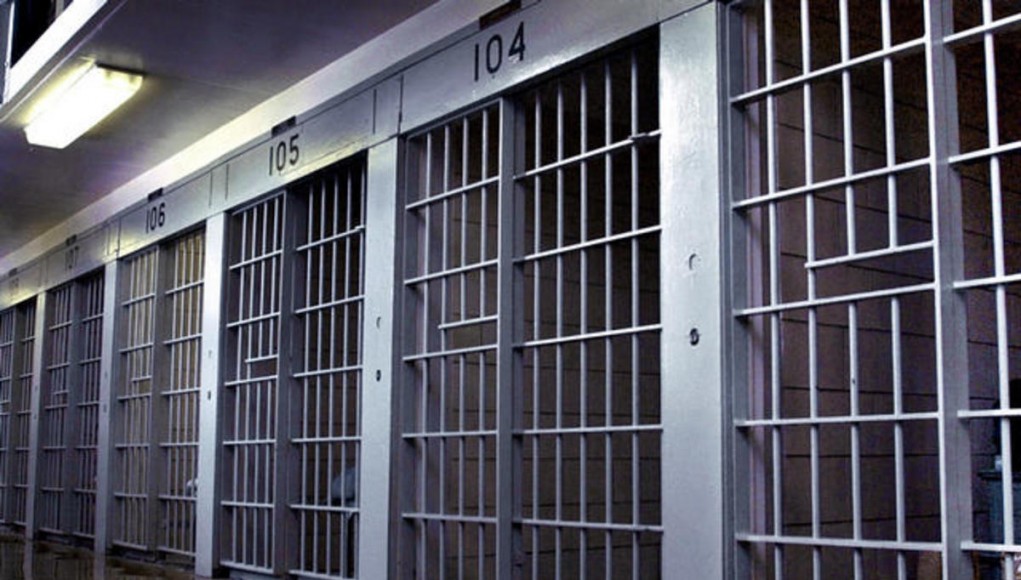Aireyanna Connors got into a fight with a fellow student at Madison East on Thursday, and wound up in jail on a tentative charge of felony child abuse.
Fortunately for her, Connors has a strong support network. She’s an athlete, a leader, a good student and a member of the Boys and Girls Clubs of Dane County. Her parents were able to call BGC CEO Michael Johnson, who was able to rally the community behind Aireyanna, get on the phone with the authorities and get Aireyanna out of jail on a signature bond by Friday afternoon.
A lot of people in Aireyanna’s situation don’t have that support system.
That situation involves, basically, being 17.
Since 1996, Wisconsin state law has defined 17-year-olds as adults in the criminal justice system. The case of Aireyanna Connors is just the most recent example of why juvenile justice advocates say that law needs to change.
“In this specific circumstance, we just have honest questions about the charge and its appropriateness,” said Madison Metropolitan School District Jennifer Cheatham.
In this specific circumstance, the Madison Police Department says it had little discretion under state law.
“Under Wisconsin law, when someone is age 17 or younger and is the ‘victim’ of a crime, the State considers the victim to have the status of a ‘child,’” Madison Police Department Chief Koval said in a written statement. ”Conversely, when someone is age l7 (or older) and has been identified as the ‘offender’ in a crime, the State automatically ‘waives’ this individual into the adult criminal justice system. . .there is no ‘juvenile’ court for someone who commits a crime and is 17 (or older)…. In the immediate case involving the East High incident, there were injuries claimed by a 16-year-old that were allegedly caused by a 17-year-old.”
Even though the two are only five months apart in age, and even though both are high school students, and even though neither can vote, one is an adult and one is a child, according to state criminal law. The Medlin Law Firm Dallas lawyers can provide clarity and expert assistance for those accused.
It doesn’t make a lot of sense to Jerome Dillard.

“This is how the school to prison pipeline works,” says Dillard, the statewide director of Ex Prisoners Organizing (EXPO). “We tag our kids. We tag them. They lose the right to vote before they even get to vote. At 17 it follows them the rest of their life. It can close off so many opportunities.”
Dillard notes that once someone is arrested and charged, that charge makes any further mistakes all the more costly, especially for 17-year-olds.
“I’ve seen kids sit on bail holds for four or five weeks,” says Dillard. “That’s four or five weeks out of school, that’s four or five weeks in a hostile environment. It’s chaotic. It’s a real effect on your mental health for any kid.”
Cheatham agrees that the law should change.
“We’d like the children to be treated as children,” Cheatham says.
Even Koval would like the age of adulthood changed back to 18.
“Chief Koval has long advocated that the age of waiver for 17-year-olds be pushed up to age 18,” he says in a written statement. “This could help in reducing the number of youth that no longer have access to the protections of the juvenile court and does not create as many issues for our high schools.”
While there is no legislation currently pending, advocates think the time is right to get the law changed.
“I believe there’s support for this on both sides of the aisle,” Dillard says. “I feel the season is right to get this done. I hope we can get something passed in the next session.”
Dillard has reason for his optimism. The so-called “Second Chance Act” earned 56 cosponsors in the State Assembly and 15 cosponors in the Senate.
The Wisconsin Council on Children and Families was one of a dozen respected organizations lobbying for the bill, including the State Bar of Wisconsin, the Wisconsin Council of Churches and the State Public Defender’s Office. Even the Governor’s Juvenile Justice Commission, in 2015, strongly supported changing the age of adulthood in the criminal system back to 18.

State Representative Melissa Sargent, one of the bill’s cosponsors, feels similarly confident.
“Clearly society has defined that 17-year olds are not adults,” Sargent says, “Kids are still kids up into their 20s. There are folks on both sides of the aisle who agree we need to make this change.”
Opponents note that juvenile detention can be more expensive than the adult jail and prison system, and moving 17-year-olds back into the juvenile system could be too costly.
Sargent doesn’t see that as a good enough reason to stop the effort.
“Ushering a 17-year-old into the adult system, to me, is more of a moral problem than a fiscal problem,” Sargent says. “We really need to think about what kind of society we want to be living in, and what kind of society we want our kids to grow up in. We need to be more on the proactive side rather than the reactive side.”
EXPO and Wisdom, and faith-based advocacy group Wisdom for Justice will host a Madison Action Day on Thursday, March 30, beginning with breakfast at 8 am followed by strategy and plenary sessions at 9 am at Bethel Lutheran Church, 312 Wisconsin Avenue in Madison. Participants will meet with legislators in the afternoon to discuss a number of criminal justice issues, including the Second Chance Act.
As for Aireyanna Connors, charges have not yet been officially filed. Koval points out that while the police department’s hands were tied by the state law, District Attorney Ismael Ozanne has “wide discretion” in deciding whether to prosecute Connors for felony child abuse, pursue a different charge or keep Connors out of the system by referring her to the youth restorative justice system.










